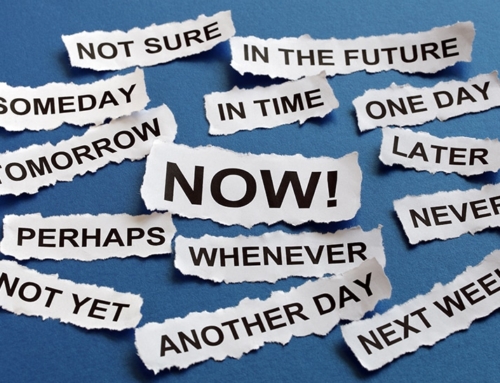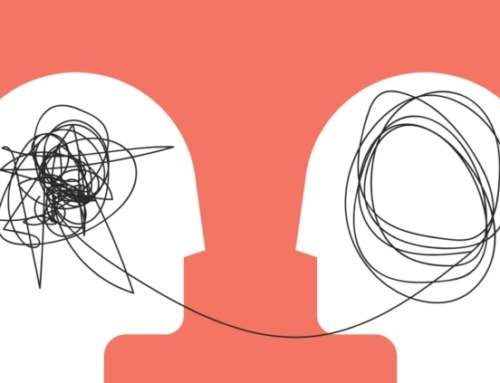Making decisions is hard. Why is that? Because any choice we confront that is easy to make – because one option among all others is clearly superior – is not even regarded as a decision. When I commute to work, I don’t fret each time over whether I should take my regular 15-minute route or some possible 30-minute route. I just take the quick route, not even considering the thousands of possible round-about ways I could drive to work.
Decisions only arise when there are options – and there are always options – that overlap in their goodness and badness, in the appetitive and aversive consequences they promise. De-cision literally means “off-cutting” or cutting off. Since decisions only arise when every perceived option promises something good (in addition to something bad), of course it’s going to be painful and emotional to cut off all those options, save one. And, following the decision, regret and a sense of loss and grief are likely to arise since one has just cut off many possible futures, of the many what-could-have-beens that now will not be.
I say all this as a reminder that it is unnecessary to beat oneself up over having difficulty making decisions. Now I want to discuss better and worse ways of making decisions. I frame this as taking an external focus vs. an internal focus when making a decision.
An external focus is one in which the decision-making process starts by scanning through the options that one perceives are available in one’s real lived world. There are several decision-making biases or heuristics that serve to (often unnecessarily) constrain the options that are considered. Three powerful ones arise when one takes a primarily external focus. They are knowledge bias, availability bias, and recency bias.
The knowledge bias is decision-making that is limited to only the options that one currently knows about. This is often a self-imposed limitation and is based on the decision-maker not conducting proper due diligence. This occurs when the decision-maker assumes having adequate knowledge of all available options and does not make efforts to gather more information.
The availability bias is decision-making that overly relies on information that comes readily to mind. What comes readily to mind is that which is most salient, which is often based on what’s currently going in one’s world, including what’s in the news. When there’s news of someone getting killed while at work in a particular profession, that news can dissuade people considering that profession by leaving them with an exaggerated view of the risks involved. We often hear of police officers killed or injured at work but rarely hear about loggers getting killed or injured, although the latter profession is much more dangerous than policing. Availability bias is narrower than knowledge bias. Certain options from the options one knows become more or less salient based on current events and experiences, thus further influencing choice.
One form of availability bias is what I call “fun bias.” This refers to options that seem particularly attractive because recent experiences with them were fun, meaningful, enriching, etc., even though the factors that led to them being fun were likely one-time factors and not core ones. Here’s my example: in my fourth year of medical school, while I remained undecided about which specialty to pursue, I did a two-week urology rotation. It was the most fun rotation I did, not necessarily because I find urology particularly fascinating, but because I had a great attending, and because the group of us – attending, residents, and two medical students – really hit it off. It was an experience of exceptional camaraderie. This led me to consider going into urology. I didn’t end up doing so because I realized that my positive experience was due to the right people being together in the right circumstances and this occurrence was unlikely to occur if I were to go into urology. I knew that my recent experience was coloring my decision-making and I consciously tried to be more “objective.” Another type of availability bias is, in fact, recency bias, a bias in which recent events play an outsized role in influencing one’s decision-making.
So, all these biases are more likely to play active roles (often in deleterious ways) when one starts off with an external focus or gives too much weight to it. This external focus is, of course, necessary but needs to be balanced against an internal focus.
An internal focus refers to entering the decision-making process through a reflection of one’s own core desires, needs, goals, and values. This is a focus that can easily be lost when one confronts the hurly-burly, all-shiny-objects, frenetic activity of the world around us. Our quiet inner voice and deep but hidden convictions can be lost to the decision-making process. It helps when a person explicitly and intentionally tells themselves to slow down, reflect, discern that which is most important. Oftentimes this type of contemplative stance does not lead to clear answers. Its insights can unfold slowly, but nevertheless lead to decisions that can better stand the test of time.
The self-questioning can include: Who am I? Who am I to be? What is my best and most fitting role to play? Which values do I hold most dear? What is to be the arc of my life? Do I want to have children? How best will I be able to balance my professional and family lives? What do I owe my community outside of work?
Sometimes the effects of such an internal focus can be subtle while at other times the effects are explicit and dramatic and can lead to a sudden flash of clarity, one that was heretofore missing from stalled decision-making.
To summarize: I believe the best decisions are made when both a coherent external focus is coupled with an internal focus undertaken with due gravity. A coherent external focus requires maintaining awareness of the biases one can fall prey to and conducting adequate due diligence. An internal focus with due gravity requires taking the time to let the answers arise out of who you are, in awareness of who you believe you are meant to be.
Of course, not all decisions are of equal import. Choosing one’s profession, nay, vocation, is one of the most important and requires care.
Thanks, and let me know what you think and which topic you would want me to cover next.
Dr. Jack
Language Brief
“The era of procrastination, of half-measures, of soothing and baffling expedients, of delays is coming to its close. In its place we are entering a period of consequence.” – Sir Winston Churchill
“The decision is your own voice; an opinion is the echo of someone else’s voice.” ― Amit Kalantri
“The straight line, a respectable optical illusion which ruins many a man.” ― Victor Hugo
“In the space between yes and no, there is a lifetime. It’s the difference between the path you walk and one you leave behind; it’s the gap between who you thought you could be and who you really are; it’s the legroom for the lies you will tell yourself in the future.” ― Jodi Picoult







Leave A Comment